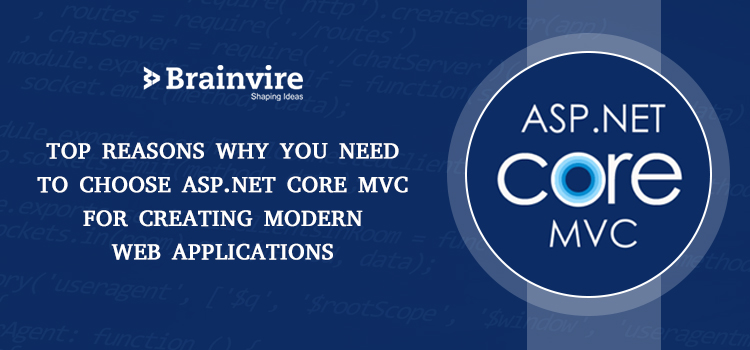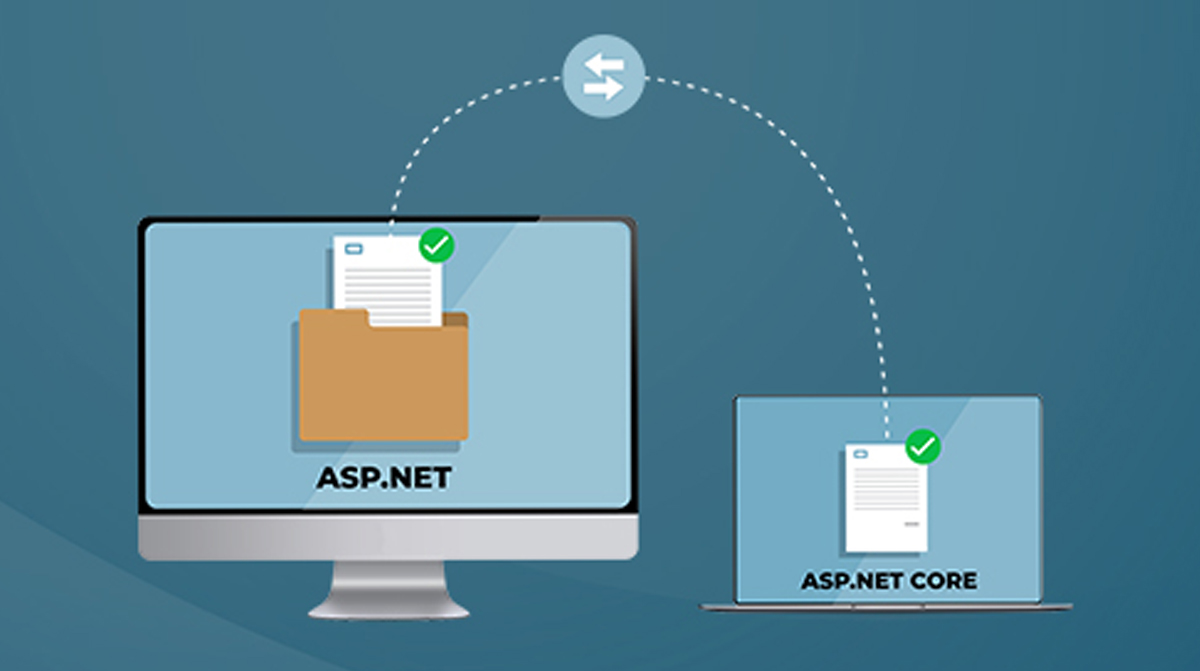
The ASP.NET Core Model View Controller framework is an open-source and lightweight framework. It is a framework that is highly testable and optimized for use with ASP.NET Core. ASP.NET Core MVC is a first-rate choice for developers looking to create modern and dynamic web applications with the help of pattern-based ways. It comprehensively supports Test Driven Development (TDD), using recent web standards.
Microsoft released the latest preview version of ASP.NET Core MVC 6.0 with some improvements. The latest stable release is 5.2.7, which was launched on 29th November 2018. So, it is important to have a view of what the important improvements are.
- Microsoft has introduced a set of new tools that will simplify the development process.
- MVC is developed on.NET Core to offer extensive support for application versioning.
- One of the most visible changes is that the ASP.NET Core MVC version 6.0 can seamlessly run on all major operating systems such as Windows, Linux, and Mac OS. It makes it easier for developers to build and run cross-platform apps on all these platforms.
- The environment-based configuration is cloud-ready.
- You get support for the development and usage of NuGet Packages.
What are the Key Features of ASP.NET Core MVC?
It is viable to discuss a few essential features of ASP.NET Core MVC to get more familiar with the framework.
Routing
The ASP.NET Core MVC framework is being developed at the top of ASP.NET Core’s routing. If we have to define routing in simple terms, it is a robust URL-based mapping component that helps you to develop URLs that can be both searched and understood. This will allow defining your URL’s naming pattern that works appropriately for Search Engine Optimization and Link Generation.
Model Binding
The role of model binding in the ASP.NET Core MVC framework is to convert client request data into objects controlled by the controller.
Model Validation
Apart from the binding model, the ASP.NET Core MVC framework also assists in the validation process. It decorates the model object with the help of data annotation validation attributes. The back-end checks the validation attributes before posting the values on to the server.
Dependency Injection
Another vital feature of the ASP.NET Core MVC is the dependency injection. The framework controllers request needed services with the help of constructors enabling them to follow the Explicit Dependencies Principle.
Filters
The role of Filters is to compress cross-cutting issues such as authorization and exceptional handling. It also helps developers to run both pre and post customized processing logic for action methods. It can also act as attributes when implemented to controllers or actions. Different filters are added to the framework as attributes to build MVC authorization filters.
Areas
Areas help in dividing a large ASP.NET MVC Web App into smaller functional groupings. We can define the area as an MVC structure within the application. You need to keep logical components such as Model View, and Controller in separate folders when working on an MVC project. MVC makes use of naming conventions to establish a connection between these components. It is beneficial to part with any large application such as e-commerce to small functional areas.
How do Developers takes Reap Benefits from the Above Features?
The developers can reap a plethora of benefits, all thanks to the outstanding ASP.NET Core MVC features. Some of these advantages include-
Developing Cross-Platform Applications
The biggest advantage that a developer can draw from ASP.NET Core MVC is that it allows him to develop cross-platform applications. The framework does not only support Windows but also other platforms such as Mac and Linux. The developers get the support from Visual Code Studio Code to develop applications in Linux and Mac OS.
Maintain Modularity and Simplify Coding
ASP.NET Core MVC is open-source and flexible, meaning that you can bring modularity to the project development landscape to simplify the coding process. You can also add the library and framework components needed for building applications.
This allows you to have leverage with the NuGet Package Manager to manage your runtime. You can add both .NET Core libraries as well as ASP.NET Core Framework as per the project requirement.
Support for Cloud Deployment
The modular architecture of the ASP.NET Core MVC framework allows you to deploy to the cloud. It means that you can easily develop applications with ASP.NET Core MVC’s support that is ready to be deployed on the cloud.
Advantages of Independent Hosting
One of the major differences between ASP.NET Core and ASP.NET is that the former application development can seamlessly run on all web servers excluding IIS (Internet Information Services). The reason being ASP.NET Core supports the cross-platform and fails to keep application dependency only on IIS. IIS has acted as the default server for the ASP.NET application development.
On a Wrapping Note
With the ASP.NET Core MVC framework offering a series of advantages, it has indeed become one of the most popular choices for developers today. It has much more improved features than its previous versions. It allows developers to build highly intuitive apps with optimal user experience. So, if you want to develop an app using ASP.NET Core, get in touch with the experienced developers today.
Related Articles
-
6 Reasons That Make ASP.NET Core The Best Framework For Web Application Development
Today, the emergence of web apps has been much easier than it was a few years ago. For web development services, there is now a wide range of platforms and
-
Gear up VIEW in ASP.NET core MVC
Asp.net web application development works on three wheels that is, MVC – Model, View, and Controller. These concepts have enhanced the way of coding in .Net Application. But what are
-
A Complete Guide – Migration from ASP.NET to ASP.NET Core
In the last few years, Microsoft is exploring and investing in quality tech stack. They are an abode of intuitive, intelligent, and robust technologies that empower developers to create dynamic



